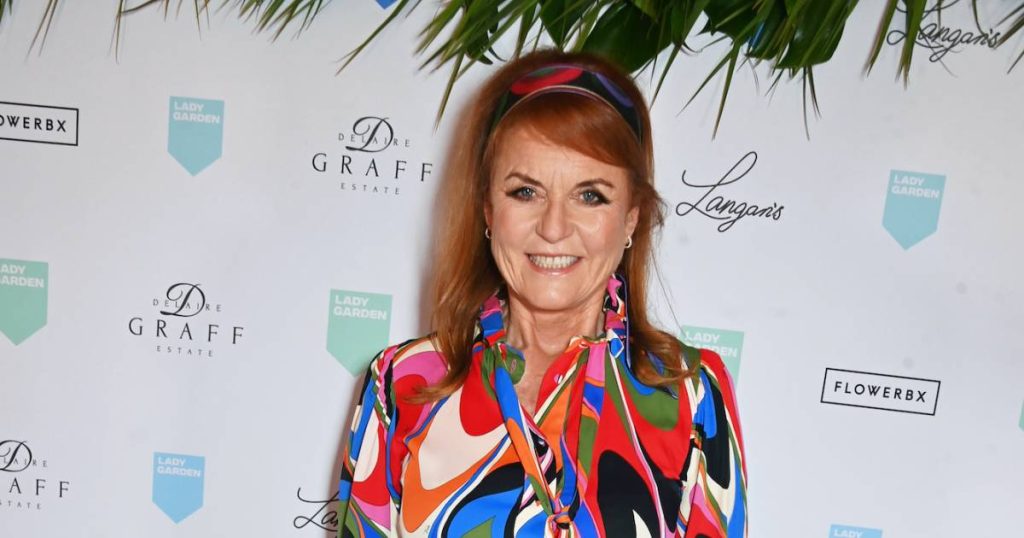Sarah Ferguson, the Duchess of York, recently offered a candid and effusive reflection on her relationship with her former husband, Prince Andrew, in an interview with The Sunday Times. Her words painted a portrait of enduring affection and mutual respect, emphasizing the strength of their bond despite their divorce. She declared her unwavering love for Andrew, stating she would “do it all over again, 100 percent,” and described him as a “great man with a great heart, and kind.” She fondly recalled their wedding day as the best of her life, acknowledging the sacrifice of her anonymity that came with it, a sacrifice she willingly made for love. Ferguson stressed their ongoing support for one another, highlighting their shared values of communication, compromise, and compassion as the cornerstones of their enduring connection. This interview, notably, took place before recent allegations regarding Prince Andrew’s association with a businessman accused of espionage surfaced.
The Duchess’s reminiscences offered a glimpse into the early days of their romance, revealing a childhood infatuation that blossomed into a whirlwind courtship. She recounted meeting Andrew at the age of 12 and harboring a nascent desire to marry him. Years later, a chance encounter orchestrated by Princess Diana at Ascot in 1985 rekindled their connection, leading to an engagement just six months later. Ferguson contrasted the constraints on their pre-marital relationship with the greater freedoms afforded to subsequent royal couples, noting that they were not permitted to live together or spend significant time alone before marriage, unlike later generations. She cited Sophie, the Duchess of Edinburgh, and Catherine, the Princess of Wales, as examples of royals who benefited from a more relaxed approach to pre-marital relationships.
Ferguson’s sister, Jane Luedecke, corroborated the Duchess’s depiction of their amicable post-divorce relationship. Luedecke described them as “the best divorced couple I know,” attributing their success to their unwavering commitment to their children. She shared an anecdote of a recent visit to Royal Lodge, where she enjoyed horseback riding with Andrew on the grounds of Windsor Castle, illustrating the ease and familiarity that characterizes their interactions. This image of a comfortable family dynamic further underscores the Duchess’s assertions of their enduring bond and mutual support.
However, Prince Andrew’s public image has been significantly tarnished by a series of controversies and allegations, particularly those related to his association with the disgraced financier Jeffrey Epstein. In 2019, Virginia Roberts Giuffre accused Andrew of sexual assault, alleging that she was forced to have sex with him on three occasions between 1999 and 2002, when she was a minor. These allegations, emerging against the backdrop of Epstein’s arrest and subsequent suicide, cast a long shadow over Andrew’s reputation and sparked widespread public condemnation.
Andrew vehemently denied Giuffre’s accusations in a BBC Newsnight interview, claiming to have no recollection of ever meeting her. His denials, however, were met with skepticism and further fueled public scrutiny. The interview itself was widely criticized for its perceived lack of empathy and Andrew’s failure to adequately address the seriousness of the allegations. The fallout from the interview was swift and damaging, leading to his withdrawal from royal duties and a significant decline in his public standing.
The recent reports linking Andrew to a businessman suspected of being a Chinese spy have added another layer of complexity to his already troubled public image. While Andrew has stated that all contact with the individual has ceased and that their meetings were conducted through official channels, the association inevitably raises further questions and reinforces the perception of his poor judgment. This latest controversy comes at a sensitive time for the royal family, as they navigate the ongoing challenges posed by Prince Harry’s departure from royal duties and the death of Queen Elizabeth II. The Duchess of York’s positive portrayal of her relationship with Andrew contrasts sharply with the negative publicity that continues to surround him, creating a complex and multifaceted narrative around their enduring connection.

